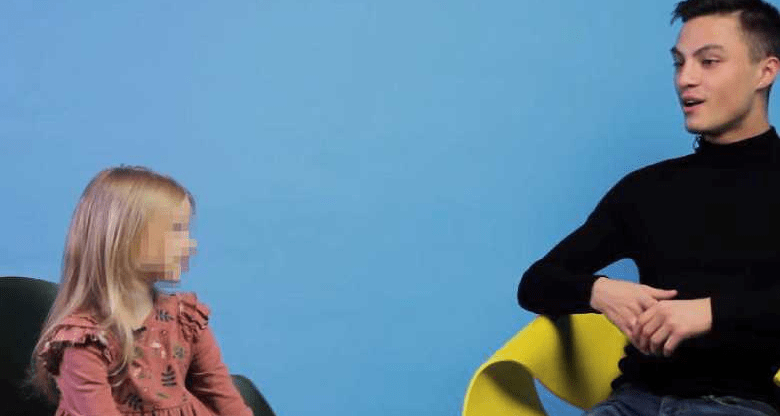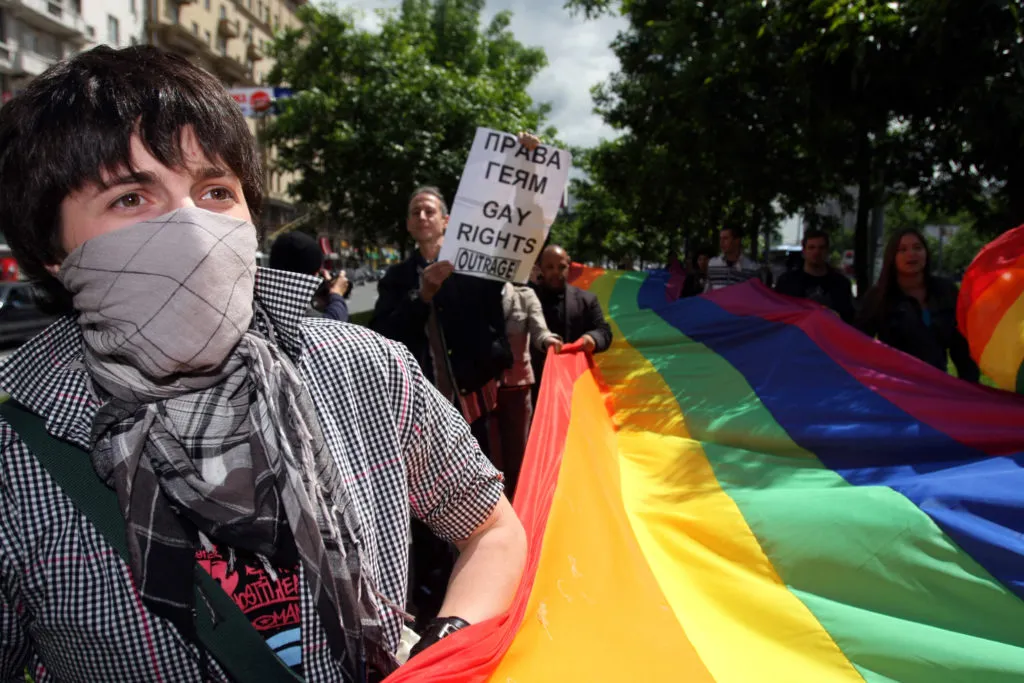Russian man receives death threats after ‘gay propaganda’ video of kids asking innocent questions about his sexuality

The video series ‘Real Talk’ allowed children to ask unscripted questions about sexuality (Crime Russia/YouTube)
A gay man in Russia is facing death threats and possible criminal charges for taking part in a YouTube series in which children asked him questions about his sexual orientation.
Maxim Pankratov, 21, featured in the Real Talk video series in which children interview people with different life experiences. The series is inspired by the popular American show Kids Meet.
In the now-deleted video, Pankratov was asked unscripted questions by four children aged six to 13, who spoke to him about his life and experiences as a gay man.
He tells them how he found out he was gay, how other people treat him, how he likes to dress, how he feels about girls, and how he’d like to get married and have his own children one day. All questions were age-appropriate and there was no discussion of sex or physical intimacy.
On seeing the video, authorities in Moscow immediately took it offline and launched a criminal investigation against the YouTube channel owners, alleging that it amounted to sexual assault of children.
Child protection services reportedly pressured the children’s parents to testify against the YouTube channel’s owners.
“What I saw cannot leave a single parent indifferent,” said State Duma deputy speaker Petr Tolstoy, who first reported the video in September.
“Suppose, of course, experts determine whether there is a violation of the current legislation or not, but it seems to me that this is ethically unacceptable and immoral.”
Russia’s ‘gay propaganda’ law makes it illegal to portray same-sex relations as socially acceptable in any way. The Human Rights Watch said this case is a “particularly disturbing example” of the law being used as a tool for discrimination and intimidation.

Members of the Russian gay community and gay rights activists from Europe hold flags during a banned gay rally in Moscow on May 29, 2008. (ANDREY SMIRNOV/AFP/Getty)
“The perniciousness of the ‘gay propaganda’ law apparently knows no boundaries. A criminal charge of sexual assault of children for a YouTube video that contained no sexual content is as outrageous as it is terrifying,” said Kyle Knight, senior LGBT+ rights researcher at Human Rights Watch.
Pankratov told Human Rights Watch that the video initially had a positive reaction, with viewers’ comments suggesting that it had “made [people] understand that gay people are no different from them”.
But after the video was reported he became subject to death threats and attempted physical attacks. He says he has received hate messages from strangers online and was recently chased by two men near his home.
“The ‘gay propaganda’ law has created both a climate of fear for LGBT people in Russia, and a climate of impunity for their attackers,” said Knight.
“In this case, a gay man with well-founded fears for his physical safety does not even contemplate seeking help from the authorities but instead fears that going to the police would do him harm.”

